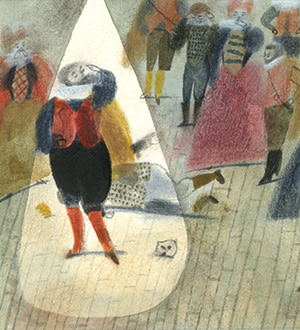The Shrink & The Sage: Are we the stars of our own movie?
Roula Khalaf, Editor of the FT, selects her favourite stories in this weekly newsletter.
The Shrink

A reader remarks that people are often “pretty self-absorbed, and do not show a great deal of curiosity about others”, behaving “as though they are the stars of their own movie”. But if we are the lead actors in our own personal dramas, does this necessarily mean going around in a selfish bubble, unwilling or unable to connect with those around us?
Acting metaphors for life and interactions go back a long way. A contemporary way of putting it could be that each of us is the star of our own soap opera. That’s fair enough in a way. Our production is after all the only one in which we appear 24/7. We can’t but be the main character in it. And we couldn’t choose to be the main character in other people’s soap operas – much as some may like to give it a go.
Being the main character inevitably means we’re most concerned about our own role, over which we have some control. But it doesn’t follow that we have to acquire the manners of a prima donna.
Perhaps the most constructive stage analogy is to think of ourselves as part of an ensemble piece: we do have to concentrate most of all on getting our lines right and playing our role to the best of our ability, but we should also be well informed about the other characters and realise that those parts are just as important as ours.
It is even more so in real life, where we can truly make sense of our own story only if we take the time and effort to understand the stories of the others with whom we interact.
We could also reflect on the fact that while we may be the main character in our own soap opera, we are in merely supporting roles when it comes to other people’s. At any point we may become redundant to their narrative while others replace us on the cast list. This should be cause for some humility: even stars are dispensable.
…
The Sage
In recent years, one of the most oft-repeated tales about human beings has been the one about our need to tell stories. It’s said that both individuals and societies need to construct narratives to instil a sense of meaning and purpose.
Some positive psychologists have added that the narratives which boost wellbeing the most connect us to the transcendent, not necessarily through religion but to anything worthwhile which is greater than ourselves. By escaping the narrow confines of the self, we feel enlarged, a part of an important whole.
It’s an attractive idea, which magically combines the promise of greater personal happiness with the virtue of greater selflessness. But much as the diminution of the ego sounds lofty, it can have a very dark side.
When we subsume our own identities in the name of a higher cause, we put some abstract ideal ahead of our own personal welfare. That’s why some choose to die for their religion, country or political ideals. Sometimes the cause is unjust, the ideals misguided. But the problem runs deeper than this. At the heart of almost all moral systems is the golden rule: do unto others as you would be done by. And if you see yourself as of trifling importance compared to the greater good, it’s a small step to seeing others in the same way too.
So, as in Stalin’s Soviet Union, the higher goal is not just allowed but commanded to trample over the comparatively trivial interests of individuals. Genocide is the extreme case, of course. But to deny any importance to our own little narrative is ultimately misanthropic, since it implies denying importance to those of others too.
There ought to be a way of steering a path between being too self-absorbed and being completely absorbed into an impersonal grand narrative. Perhaps, then, the best acting metaphor does not cast us as stars of our own Hollywood blockbuster or as extras in a sweeping narrative but as performers in a modest little show by the Walmington-on-Sea amateur dramatics society: a part to play with pleasure and pride, but nothing to feel self-important about.
The Shrink & the Sage live together in southwest England.
To suggest a question, email shrinkandsage@shrinkandsage.com
Comments